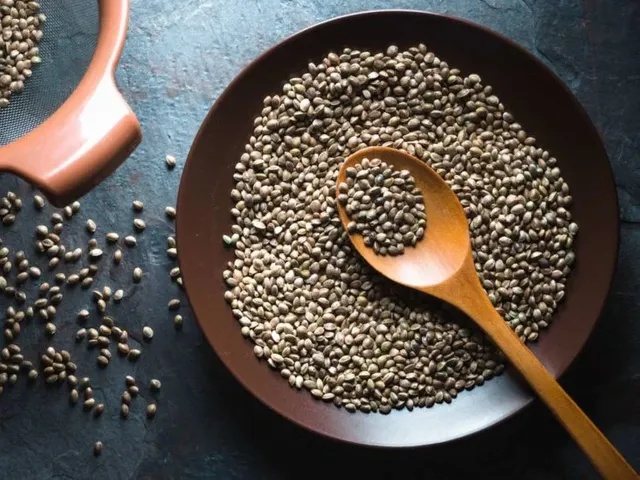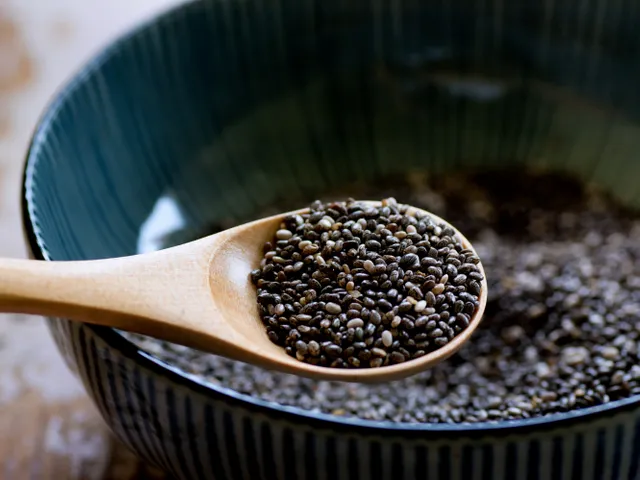Chia seeds have gained popularity as a nutritious food due to their impressive nutritional profile and potential health benefits. Here are some guidelines for chia seed consumption, along with their nutritional value and benefits:
Eating Rules:
Hydration: Chia seeds are hydrophilic, meaning they can absorb water and form a gel-like consistency. It's recommended to soak chia seeds before consuming to prevent them from absorbing water from your body during digestion. You can soak them in water or another liquid for about 15-20 minutes before eating.
.webp)
Portion Size: A typical serving size is around 1 to 2 tablespoons of chia seeds per day. This provides a good balance of nutrients without excessive calorie intake.
Versatility: Chia seeds are versatile and can be added to various dishes, including smoothies, yogurt, oatmeal, salads, or used as an egg substitute in baking.
Consistency: The gel-like consistency formed when chia seeds are soaked can be used to create puddings or as a thickening agent in recipes.
Nutritional Value (per 2 tablespoons or about 28 grams):
Calories: 138
Protein: 4 grams
Fat: 9 grams (mainly omega-3 fatty acids)
Carbohydrates: 12 grams
Fiber: 10 grams
Calcium: 18% of the Daily Value (DV)
Iron: 12% DV
Magnesium: 23% DV
Phosphorus: 27% DV
.webp)
Benefits:
Rich in Omega-3 Fatty Acids: Chia seeds are an excellent plant-based source of omega-3 fatty acids, which are essential for heart health.
High in Fiber: The high fiber content aids in digestion, helps maintain a feeling of fullness, and supports gut health.
Source of Antioxidants: Chia seeds contain antioxidants that help protect the body from free radicals, which can contribute to aging and various diseases.
Nutrient-Dense: Despite their small size, chia seeds are packed with essential nutrients like calcium, magnesium, phosphorus, and iron.
.jpg)
Blood Sugar Regulation: The soluble fiber in chia seeds may help regulate blood sugar levels, making them beneficial for individuals with diabetes.
Hydration: The ability of chia seeds to absorb water helps with hydration and electrolyte balance.
Weight Management: The combination of fiber, protein, and healthy fats in chia seeds may contribute to satiety and weight management.
It's important to note that while chia seeds offer numerous health benefits, they should be part of a balanced diet. If you have any specific health concerns or conditions, it's advisable to consult with a healthcare professional or a nutritionist before making significant changes to your diet.